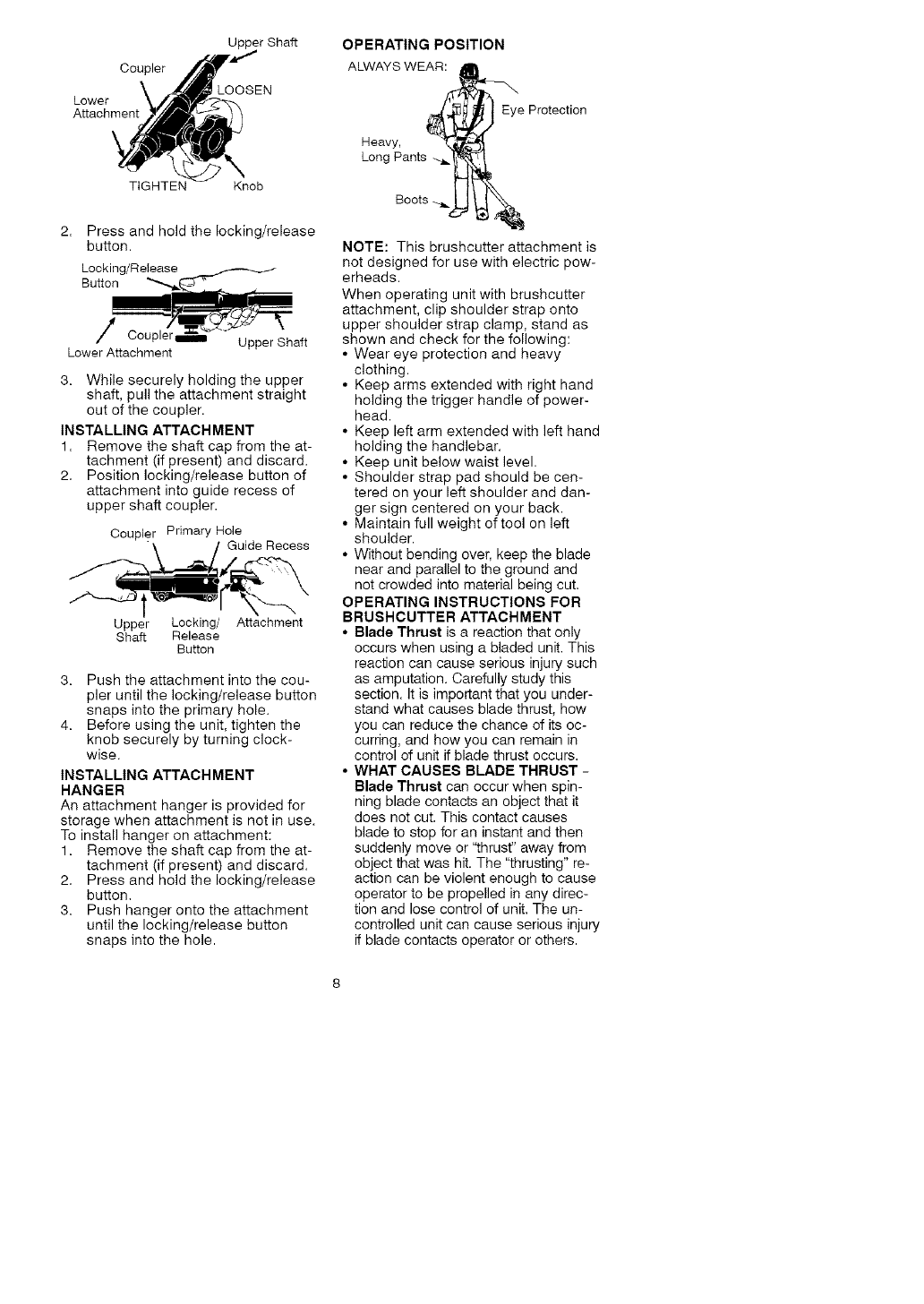
Coupler
Lower \
Attachment
Upper Shaft
LOOSEN
TIGHTEN Knob
2= Press and hold the locking/release
button.
Locking/Release
Button
Lower Attachment
3= While securely holding the upper
shaft, pull the attachment straight
out of the coupler.
INSTALLING ATTACHMENT
1= Remove the shaft cap from the at-
tachment (if present) and discard.
2= Position locking/release button of
attachment into guide recess of
upper shaft coupler.
Coupler Primary Hole
Guide Recess
Upper Locking/ Attachment
Shaft Release
Button
3= Push the attachment into the cou-
pler until the locking/release button
snaps into the primary hole.
4= Before using the unit, tighten the
knob securely by turning clock-
wise.
INSTALLING ATTACHMENT
HANGER
An attachment hanger is provided for
storage when attachment is not in use.
To install hanger on attachment:
1= Remove the shaft cap from the at-
tachment (if present) and discard.
2= Press and hold the locking/release
button.
3= Push hanger onto the attachment
until the locking/release button
snaps into the hole.
OPERATING POSITION
ALWAYS WEAR:
Heavy,
Lonc
Eye Protection
Boots
NOTE: This brushcutter attachment is
not designed for use with electric pow-
erheads.
When operating unit with brushcutter
attachment, clip shoulder strap onto
upper shoulder strap clamp, stand as
shown and check for the following:
• Wear eye protection and heavy
clothing.
• Keep arms extended with right hand
holding the trigger handle of power-
head.
• Keep left arm extended with left hand
holding the handlebar.
• Keep unit below waist level.
• Shoulder strap pad should be cen-
tered on your left shoulder and dan-
ger sign centered on your back.
• Maintain full weight of tool on left
shoulder.
• Without bending over, keep the blade
near and parallel to the ground and
not crowded into material being cut=
OPERATING INSTRUCTIONS FOR
BRUSHCUTTER ATTACHMENT
• Blade Thrust is a reaction that only
occurs when using a bladed unit. This
reaction can cause serious injury such
as amputation. Carefully study this
section. It is important that you under-
stand what causes blade thrust, how
you can reduce the chance of its oc-
curring, and how you can remain in
control of unit if blade thrust occurs.
• WHAT CAUSES BLADE THRUST -
Blade Thrust can occur when spin-
ning blade contacts an object that it
does not cut. This contact causes
blade to stop for an instant and then
suddenly move or "thrust" away from
object that was hit. The "thrusting" re-
action can be violent enough to cause
operator to be propelled in any direc-
tion and lose control of unit. The un-
controlled unit can cause serious injury
if blade contacts operator or others.













